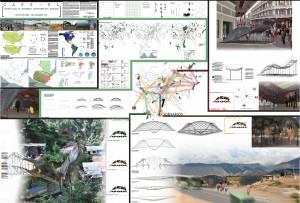http://21stcenturyscholar.org/
DECLINE OF THE CULTURE OF TEACHING PART 1 + 2
“I think a lot about the culture of organizations and what I experience today is a de-valuing of teaching – that we are all replaceable parts. If we standardize the curriculum and all teach to the same syllabus then we will have greater efficiencies. Maybe so. But I wish we were not talking about greater efficiencies and instead talking about how to make our students better writers and in doing so, better thinkers. So it goes……….”-Bill Tierney
TEACHING STUDENTS THE PROCESS OF HIGHER EDUCATION APPLICATION AND SURVIVAL
Pathfinder’s Progress •October 22, 2010
WEB BROWSWER DIFFERENCES: WHAT WE LOOK FOR IN OUR DAILY LIFE
The main differences amid browsers revolve around three primary issues:
(1) SPEED. Although Firefox takes the longest to load, its average navigation time is the fastest by nearly .6 seconds. Depending on how much time you spend surfing the internet, that can really add up. Let’s suppose you visit on average 70 web pages a week (most of us visit more). A Firefox user might spend two hours less per year visiting the same sites as a Safari user.
(2) FEATURES. Features are the little details that come in handy in a pinch. History, tabs, frequently visited sites, automatic updates, password manager, synchronization, zoom, even spell check. These are the extras that improve (or impede) your experience surfing the web.
(3) LAYOUT. Where the functions are located is a matter of personal preference. All the browsers have customizable features to a certain extent, but basic arrangement templates vary.
UNMAKING THE PUBLIC UNIVERSITY
TAKING DOWN THE IVORY TOWERS: A NEW ROLE FOR UNIVERSITIES
Randy Clemens
“The difference now, perhaps, is that the walls between university and community are crumbling. The involvement of university partners in the Promise Neighborhoods initiative is one such example. Academic freedom remains critical, but the professor is one of many engaged in a dialogue about the good of a community. Knowledge production, ceded to multiple stakeholders, is more applied and more egalitarian.”
“[Micheal] Burawoy concludes, “We are arriving, therefore, at a new vision of the public university, one that is publicly accountable, that engages with publics rather than simply with itself. This does not preclude relations with business or the development of incentive structure but subjects them to open discussion, a discussion that includes all the stakeholders, a discussion that recognizes the tradeoffs at stake!” We are, indeed, entering a new age for the university. Public and private partnerships as well as innovative ventures are on the rise. Hopefully, open dialogue will occur during all of these initiatives so that multiple parties within and without the university can work to socially construct a better society.”
GLOBAL RIGHTS: [INTERNATIONAL STUDENTS]
